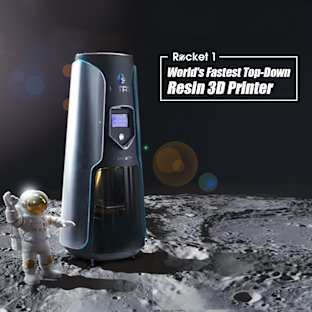![]()
![]()
Overview:
This documentary is about the fight by Native Americans, and others, to end the dehumanizing practice of mascoting Native Americans in American culture.
Purpose:
The aim of the documentary is to precipitate a tipping point on mascoting of Native Americans by illuminating for the audience the truth of its repugnant origin and its dishonorable and deleterious application, particularly as it relates to the National Football League’s Washington, D.C. franchise.
Synopsis:
This documentary film will be a comprehensive examination of the movement to end the use of logos, mascots, gestures and names that demean and trivialize Native Americans, their history and their culture.
It will include interviews with Native Americans, political activists, politicians, current and former professional athletes, sports executives and officials, educators, lawyers, scientists and journalists. It will detail their views on the movement and offer their thoughts on what can and should be done to end the practice of reducing Native American culture to caricatures and epithets.
The first third of the film will establish the genesis of the relationship between entertainment, particularly sports, and Native American culture. During this portion of the film, the audience will be introduced to Suzan Harjo, President of the Morning Star Institute, a national Native
American rights organization based in Washington, D.C. Ms. Harjo will
contextualize the issue of mascoting in entertainment, and how it has
metastasized into a sports nicknaming controversy, through her personal
narrative of activism and advocacy on behalf of Native Peoples for more
than 50 years. She has been a plaintiff in multiple lawsuits against
various sports entities who have used Native American references and
imagery in their names, including that of Washington’s NFL franchise
which the U.S. Patent and Trademark Office’s appeal board recently ruled
was in violation of federal law.
![]()
Suzan Harjo
The body of the film will illuminate the current and most dramatic controversy concerning mascoting of Native Americans. It is the one that surrounds the NFL and its franchise in Washington, D.C., the nation’s capital. Washington's football team has long been at the epicenter of this fight. But, in recent years, the league's commissioner, Roger Goodell, and the team’s owner, Daniel Snyder, have come under unprecedented pressure, due to shifting cultural sensitivity, to establish a dialogue with Native American activists who demand an alternative name for the team. This part of the film will explore the team's history, specifically the story of William “Lone Star” Dietz. He was the team's second coach, who was of German heritage but claimed to be a Sioux Indian. His claim was used by the team to change its name from Boston Braves to Boston Redskins. The team’s owners have argued the name change was out of respect for Native American heritage and tradition.
![]()
William "Lone Star" Dietz
The film will answer questions that fuel this movement, most notably how a term like “redskin,” which evolved into a slur, came to be the team name of one of the most recognizable, beloved and profitable sports franchises in the world. The film will explain how the nickname has further marginalized Native People and their struggle. It will show how the media has made Native Americans appear complicit in their own trivialization. It will indicate why there need not be a moral consensus among Native Americans, or others, for a recognition that there is inherent racism in the use of slurs as nicknames and images as commercial mascots and fanatic themes. It will highlight an eruption in the National Basketball League in 2014 over bigoted remarks by a billionaire owner of a franchise -- which resulted in public pressure that forced his departure -- to illuminate how and why sports leagues have moral and ethical responsibilities not to be offensive to any race, ethnicity, religion or gender.
The latter portion of the film will underscore the conflicting interests of cultural and racial sensitivity versus tradition and brand recognition. Hundreds of millions of dollars are at the heart of this issue and this film will show how owners, league executives, players and fans—-particularly those who, like the film’s producers, are of color and ostensibly sensitive to racial insensitivity—are complicit. We, the film’s producers, are representative of predominantly African-American Washington, D.C., as black males and lifelong fans of the football team, will explain how we for so long overlooked the offensiveness of that nickname and how we journeyed to protest it. We will explain how we came to see such a term for Native Americans as no different than any defined slur for us, African-Americans, or other races and ethnicities. We will explain how our cultural sensitivity extinguished our allegiance to brand recognition, in which we were for so long, like those whose minds we seek to change, invested emotionally and financially.
Budget
Equipment - Cameras, lighting, data storage, etc.
Travel - We will interview academics, athletes, political leaders, historians, activists, journalists and members of the Native American community from around the country. This will require extensive traveling to several states, including but not limited to Arizona, California, Minnesota, Oklahoma, and The Dakotas.
Licensing and Research - In order to properly illustrate the historical impact these images have had on American society and the psyche of Native American children, we will purchase the rights to archival footage and photos that many Native American leaders and scholars feel offer harmful depictions of Native American culture and people that have desensitized far too many people to imagery and language that would be viewed as intolerable if directed at any other group of human beings.
Promotion - We intend to submit the film into notable festivals, as well as organize free screenings on college campuses, in order educate and raise awareness of this issue among younger people.
Crew - We are assembling a talented group of filmmakers who are as enthusiastic and eager to begin this project as we are, but they can't work for free. Their wages and expenses (transportation, food, hotel, etc.) must be covered.
Post-production - Editing, sound, graphics, color correction, etc.
Interviewees
This is the most recent list of people who have agree to share their insights for the project:
Stephen Baird, trademark attorney
Phil Deloria, Carroll Smith-Rosenberg Collegiate Professor of American Culture and History, University of Michigan
Jeremi Duru, law professor, American University
Ives Goddard, senior linguist emeritus, Smithsonian Institute
Rev. Graylan Hagler, senior minister, Plymouth Congregational United Church of Christ
Ray Halbritter, CEO, Oneida Nation Enterprises
Suzan Harjo, Native American activist, author and scholar
Glenn Harris, journalist
Robert Holden, Deputy Director of National Congress of American Indians
Chris Kluwe, former NFL player
U.S. Rep. Betty McCollum, Minnesota
Cyrus Mehri, civil rights attorney
U.S. Rep. Eleanor Holmes Norton, Washington DC
James Riding In, professor of American Indian Studies, Arizona State University
Kenneth Shropshire, professor, Wharton School, University of Pennsylvania
Deborah Simmons, journalist
Rebecca Tushnet, law professor, Georgetown University
W. Richard West, president, Autry National Center
Suanne Ware-Diaz, former Executive Director at Cook Native American Ministries
Mike Wise, journalist
John Wooten, chairman, Fritz Pollard Alliance
Dave Zirin, journalist
Filmmakers
![]()
Sam Bardley Jr. (Director/Producer)
Sam is a documentary filmmaker with a passionate interest in telling stories rooted in his hometown of Washington, D.C. He was a writer and producer for the Emmy-nominated film Without Bias, which was part of ESPN's inaugural 30 for 30 documentary series. He has developed projects for TV One and BET, including the true-crime documentary series American Gangster, as well as written, produced and directed several short films and college-level educational videos. Sam is a graduate of Howard University and Boston University’s Center for Digital Arts.
![]()
Kevin Blackistone (Writer/Producer)
Kevin is a longtime national sports columnist, visiting professor at the University of Maryland’s Philip Merrill College of Journalism, ESPN television panelist, co-author of A Gift for Ron, and contributor at NPR, PBS, ESPN Radio and The Guardian. A Washington, D.C., native, Kevin is a recipient of awards from the Texas Associated Press Managing Editors, Chicago Newspaper Guild and National Association of Black Journalists. Kevin graduated from Northwestern University’s Medill School of Journalism and earned a master’s at Boston University, where he was a Martin Luther King Fellow.
![]()
Kali McIver (Producer)
Kali McIver is an award winning and Emmy-nominated television and
film producer from Washington, D.C., who has produced shows for a variety of networks, including FOX, CBS, the Travel Channel, Food Network, MTV, Nickelodeon, Style, OWN, TV One, BET and ESPN, where he was part of the team that produced the Emmy-nominated film Without Bias for the sports network’s inaugural 30 for 30 documentary series. Kali graduated from Drexel
University with a dual degree in Film and Video Production and Business Administration.
SPECIAL THANKS
Doug Bedford- Editing and Graphics
Gearie Bowman - Camera
Brian H. Melnickey - Sound
PERKS
![]() COFFEE MUG
COFFEE MUG
![]() SWEATSHIRT
SWEATSHIRT
![]() TEE SHIRT
TEE SHIRT
POSTER
![]()
Thank you for viewing our campaign. We hope that you will join us in attempting to advance the dialogue on this issue, and ultimately heightening the cultural sensitivity of enough people to end the practice of mascoting.
We can be reached at shadowcityfilms@gmail.com






























 COFFEE MUG
COFFEE MUG SWEATSHIRT
SWEATSHIRT
 TEE SHIRT
TEE SHIRT
















